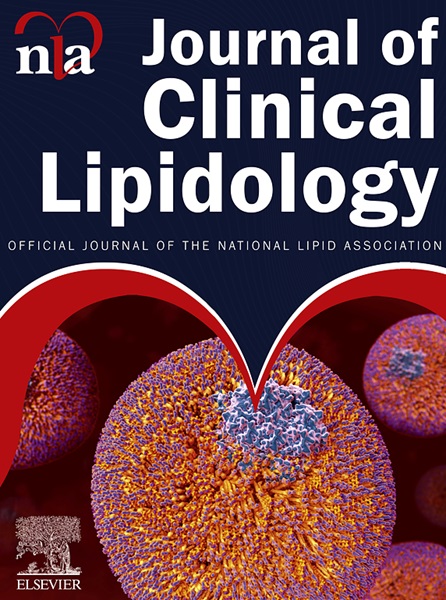利用游戏化教育内科住院医师如何管理炎症患者的血脂
IF 4.6
3区 医学
Q2 PHARMACOLOGY & PHARMACY
引用次数: 0
摘要
背景/概要:人类免疫缺陷病毒(HIV)和自身免疫性疾病等炎症性疾病会增加患者发生动脉粥样硬化性心血管疾病(ASCVD)的风险。初级保健机构的受训者可能不熟悉这些条件下ASCVD风险的管理。游戏化是一种新颖的教育工具,可以提高学习者的参与度和知识水平,帮助他们更好地管理炎症患者的ASCVD风险。目的/目的研究游戏化对内科住院医师炎性患者ASCVD管理的教育效果。方法在一个大型内科住院医师学术项目中,我们比较了住院医师主导的使用KAHOOT®的虚拟游戏化课程与传统的基于幻灯片的课程。该项目的所有住院医生都接受了一个1小时的基于病例的课程,总结了美国心脏病学会、国家脂质协会和美国心脏协会关于艾滋病毒和自身免疫性疾病背景下心血管风险增加的指南。调查前-后包括知识问题、李克特5分量表(1 - 5分),评估自我报告的心血管风险管理和参考指南的信心、遵守指南的动机、参与度和格式偏好。采用双尾学生t检验对匹配前后测试数据和不匹配李克特量表数据进行分析。结果有65/108(60.2%)的内科分类住院医师接受游戏化格式,43/108(39.8%)接受传统格式。游戏化组14/65(21.5%)和传统组7/43(16.3%)分别完成了前后测试,并进行配对分析。游戏化组(前0.43至后0.76,p < 0.01)和传统组(前0.55至后0.81,p = 0.02)的测试成绩显著提高。游戏化组与传统组相比,游戏化组的测试成绩变化无差异(0.33 vs. 0.26, p = 0.52)。在游戏化组和传统组中,李克特量表对咨询患者和参考指南的信心评分都有显著增加。在游戏化组中,有更大的动机坚持指导方针(游戏化4.5 vs传统4,p = 0.06)。15/21(71.4%)的居民更喜欢游戏化的形式。结论游戏化讲座和传统讲座均能显著提高居民在炎性条件下ASCVD的管理知识。游戏化是最受欢迎的讲课方法。需要进一步的研究来确定炎性疾病中ASCVD风险的游戏化教育是否会影响临床实践和结果。本文章由计算机程序翻译,如有差异,请以英文原文为准。
Utilizing gamification to educate internal medicine residents on managing lipids in patients with inflammatory conditions
Background/Synopsis
Inflammatory conditions such as human immunodeficiency virus (HIV) and autoimmune diseases increase patients’ risk of atherosclerotic cardiovascular disease (ASCVD). Trainees in the primary care setting may not be familiar with management of ASCVD risk in the setting of these conditions. Gamification, a novel educational tool, can improve learners’ engagement and knowledge to help them better manage ASCVD risk for those living with inflammatory conditions.
Objective/Purpose
We studied the effectiveness of gamification in educating internal medicine residents on management of ASCVD in patients with inflammatory conditions.
Methods
At a single large academic internal medicine residency program, we compared a resident-led virtual gamified curriculum utilizing KAHOOT® to a traditional slide-based curriculum. All residents in the program received a 1-hour case-based session summarizing American College of Cardiology, National Lipid Association and American Heart Association guidelines on enhanced cardiovascular risk in the setting of HIV and autoimmune diseases. Pre-post-surveys included knowledge questions, 5-point Likert scales (1 to 5) assessing self-reported confidence in managing cardiovascular risk and referencing guidelines, motivation to adhere to guidelines, engagement, and format preference. Matched pre-post test data and unmatched Likert scale data were analyzed with two-tailed students’ t-tests.
Results
65/108 (60.2%) categorical internal medicine residents received the gamified format and 43/108 (39.8%) received the traditional format. 14/65 (21.5%) residents in the gamified group and 7/43 (16.3%) in the traditional group completed pre-post tests and were analyzed as matched pairs. There was a significant increase in test performance in the gamified (pre- 0.43 to post- 0.76, p<0.01) and traditional (pre- 0.55 to post- 0.81, p = 0.02) groups. There was no difference (gamified 0.33 vs. traditional 0.26, p = 0.52) in the post-pre change in test performance between groups. There were significant increases in Likert scale ratings of confidence in counseling patients and referencing guidelines in both gamified and traditional groups. There was a trend towards greater motivation to adhere to guidelines (gamified 4.5 vs. traditional 4, p = 0.06) in the gamified group. 15/21 (71.4%) of residents preferred a gamified format.
Conclusions
Both gamified and traditional lectures significantly improved residents’ knowledge of management of ASCVD in the setting of inflammatory conditions. Gamification was the favored method for lectures. Further research is needed to identify if gamification education on ASCVD risk in inflammatory disease can impact clinical practice and outcomes.
求助全文
通过发布文献求助,成功后即可免费获取论文全文。
去求助
来源期刊
CiteScore
7.00
自引率
6.80%
发文量
209
审稿时长
49 days
期刊介绍:
Because the scope of clinical lipidology is broad, the topics addressed by the Journal are equally diverse. Typical articles explore lipidology as it is practiced in the treatment setting, recent developments in pharmacological research, reports of treatment and trials, case studies, the impact of lifestyle modification, and similar academic material of interest to the practitioner.
Sections of Journal of clinical lipidology will address pioneering studies and the clinicians who conduct them, case studies, ethical standards and conduct, professional guidance such as ATP and NCEP, editorial commentary, letters from readers, National Lipid Association (NLA) news and upcoming event information, as well as abstracts from the NLA annual scientific sessions and the scientific forums held by its chapters, when appropriate.

 求助内容:
求助内容: 应助结果提醒方式:
应助结果提醒方式:


